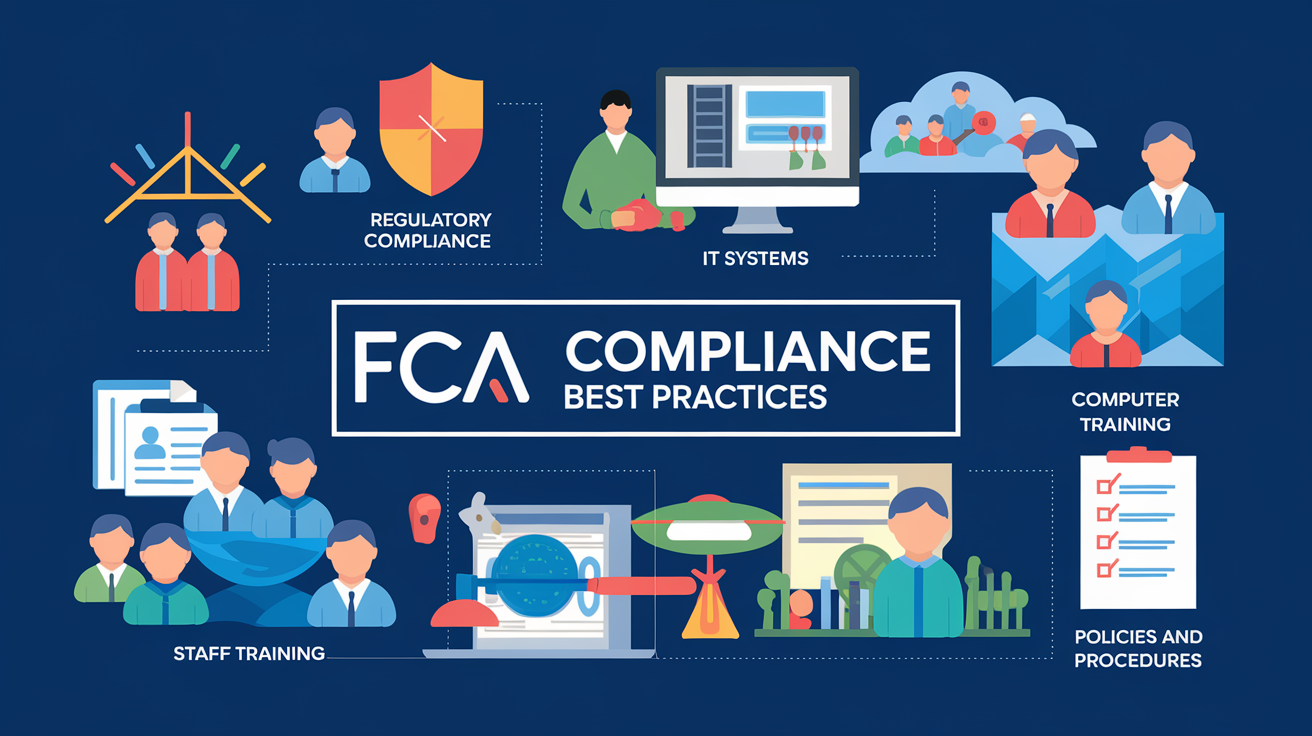
-
Continuous Improvement for FCA Compliance
The role of FCA (Financial Conduct Authority) in regulating financial services is critical for ensuring the safety and integrity of the financial system. Continuous improvement in FCA compliance not only helps organisations remain compliant but also fosters a culture of self-evaluation and efficiency.
-
Understanding FCA Compliance
FCA compliance refers to adhering to the rules and regulations set by the Financial Conduct Authority, aimed at protecting consumers, promoting competition, and ensuring the integrity of the UK’s financial markets. Compliance is essential as it builds trust and ensures the sustainability of financial institutions. Non-compliance can lead to severe penalties, including legal action and damage to reputation.
-
Continuous Improvement Framework
Adopting a continuous improvement framework, such as the PDCA cycle or Kaizen philosophy, allows organisations to systematically enhance compliance processes. The PDCA cycle involves planning changes, implementing them, checking results, and acting on what is learned.
-
Conducting Compliance Audits
Regular audits are essential for identifying compliance areas that require improvement. Schedule these audits tactically, and consider engaging third-party auditors for impartial viewpoints. The findings from each audit should be documented and used to inform actionable compliance strategies.
-
Risk Assessment and Management
Identifying potential risks involves comprehensive analytics of the processes involved in FCA compliance. Developing mitigating strategies, such as ensuring proper staff training and maintaining updated compliance policies, can effectively reduce exposure to risks. Continuous monitoring is crucial for adapting to new challenges.
-
Training and Development
Creating comprehensive training programs is vital for equipping staff with the knowledge of FCA regulations. Regular sessions should be held to update employees on new developments. Continuous evaluation of these training efforts helps refine educational strategies.
-
Leveraging Technology for Compliance
Modern compliance software can streamline tasks, automate repeatable processes, and ensure consistent adherence to FCA regulations. Data analytics can support decision-making by highlighting trends and potential compliance issues. Continuous monitoring tools enable real-time oversight of compliance status.
-
Feedback Mechanisms
Implementing anonymous reporting channels empowers employees to voice compliance concerns safely. Conducting regular surveys about compliance culture can shine a light on significant concerns. Action plans derived from such feedback should be actionable and communicated effectively.
-
Conclusion
In summary, a commitment to constant improvement in FCA compliance is not only beneficial but necessary. By integrating best practices into organisational culture, financial institutions can ensure ongoing compliance and operational resilience.
This structured approach serves as a roadmap to refine FCA compliance efforts continuously and adapt to changing regulations for sustained success.
To Contact Us
Tel; UK 0800 689 0190, International +44 207 097 1434
Email: info@complianceconsultant.org
Or Book A Discovery Call with us by clicking the picture below!
You may also find these posts of interest
FCA Risk Assessment and Management
Reporting Requirements for FCA Compliance
Establishing a Compliance Culture
Benchmarking Against Industry Standards

